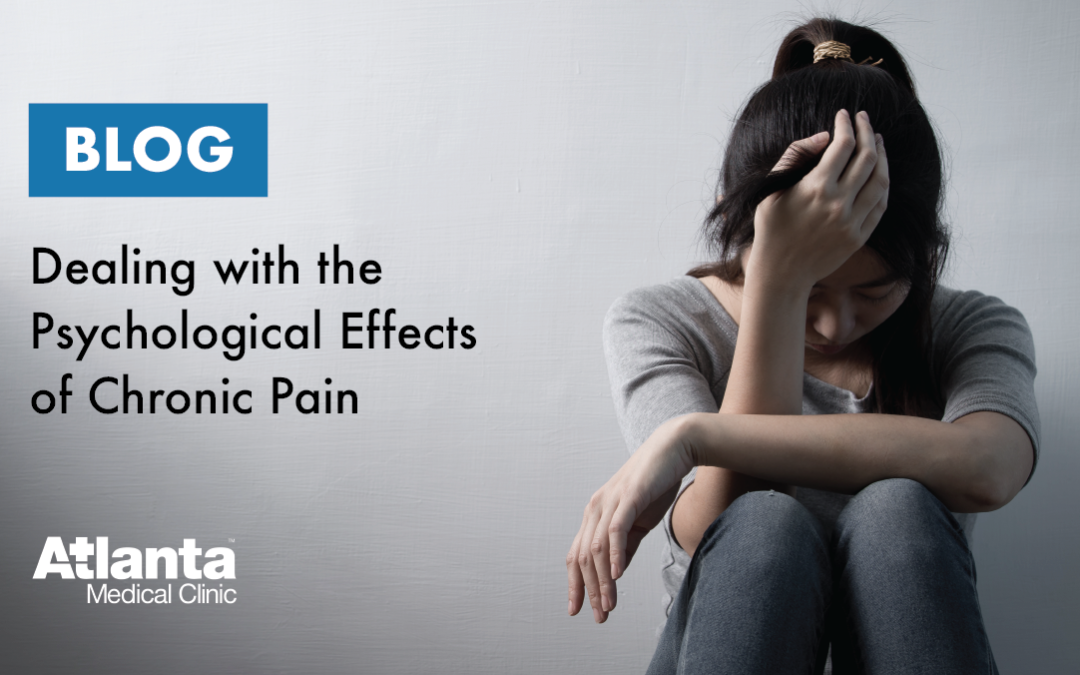Did you know that 20% of American adults – approximately 50 million people – suffer from chronic pain? While there are several ways chronic pain can interfere with one’s everyday life, the repercussions are seen most often in physical and mental health. For example, those living with chronic pain may suffer from sleep disturbances, fatigue, brain fog, decreased appetite, mood changes, etc. Unfortunately, many patients become so focused on alleviating the physical pain that they neglect to address the psychological effects of their chronic pain, often leading to depression, hypersensitivity, insomnia, anxiety, and more. Thankfully, chronic pain doesn’t have to last forever and there are many ways to combat these effects to live a pain-free life. You just have to know how to get there.
What is Chronic Pain?
Chronic pain is long-standing pain that persists beyond the usual recovery period or occurs alongside a chronic health condition. Chronic pain is often caused by inflammation or dysfunctional nerves and its persistent pain can last for months or even years. Common types of chronic pain include:
- Arthritis/Joint Pain
- Migraines
- Back pain
- Neck pain
- Neuropathy
Psychological Effects of Chronic Pain
Chronic pain has been known to change the levels of stress hormones and neurochemicals found within the brain and nervous system. This pain can affect one’s mood, thinking and behavior patterns to the point where they cannot do the things they once enjoyed, such as physical activity, working and even eating. Chronic pain can lead to a wide array of mental effects, including:
Depression – Living with long-term pain can cause low self-esteem and a sense of lack due to the inability to participate in social activities and hobbies with loved ones. This, in turn, can trigger a depressive episode, even for those who have never been diagnosed before.
Anxiety – Recent studies suggest that people living with chronic pain are three times more likely to develop anxiety symptoms or an anxiety disorder. Because stress and anxiety increase pain sensitivity, one may focus on their pain more than before, thus heightening their stress levels throughout the body.
Insomnia – It can be hard to get a good night’s sleep when suffering from chronic pain; this is partly due to the pain itself but can also be the cause of non-restorative sleep that comes from persistent pain throughout the night. Of course, one needs quality sleep to function and lack of sleep due to insomnia can exacerbate other psychological disorders like depression and anxiety.
Irritability – The challenges of chronic pain can lead to an increase in erratic or unstable behavior. Many people report common symptoms of impatience and anger, which can negatively impact both personal and professional relationships and your mental health overall.
How to Cope with Mental Effects of Chronic Pain
- Educate yourself on your condition to reduce fear of the unknown.
- Practice mindfulness.
- Incorporate low-impact workouts to alleviate stress and joint pain.
- Visit Atlanta Medical Clinic and say goodbye to pain once and for all.
Chronic pain is an uphill battle that often leads to adverse mental effects. While treating chronic pain may seem impossible, it can be done. Here at Atlanta Medical Clinic, we provide non-surgical, natural, and holistic methods to find the root cause of your pain and eliminate it for good. Don’t let your pain get in the way of your life. Contact us today.

